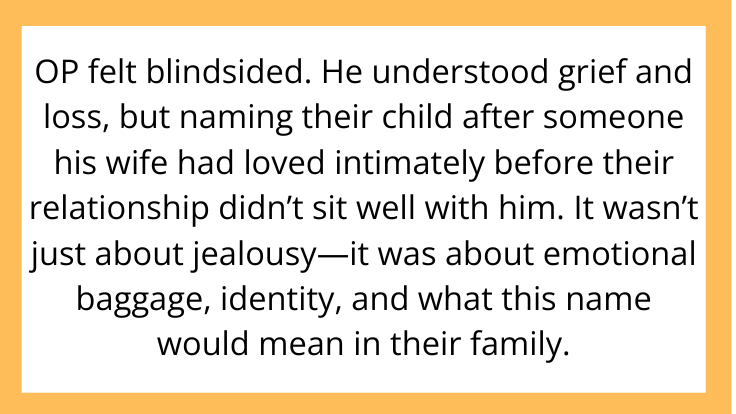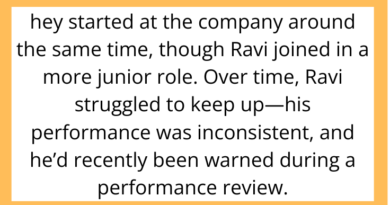Am I the Jerk for Not Letting My Wife Name Our Baby After Her Late Ex?
When it comes to naming a child, emotions run high. For some, it’s a chance to honor loved ones. For others, it’s about giving the baby a name with a future—not one haunted by the past. But what happens when that name happens to belong to a significant person from your partner’s previous relationship?
That’s exactly the dilemma one Reddit user faced in a post that quickly caught fire on the AITAH subreddit. What began as a discussion over baby names turned into a deep debate over respect, boundaries, and whether honoring the dead should come at the cost of someone else’s comfort.
The Situation: A Name With Baggage
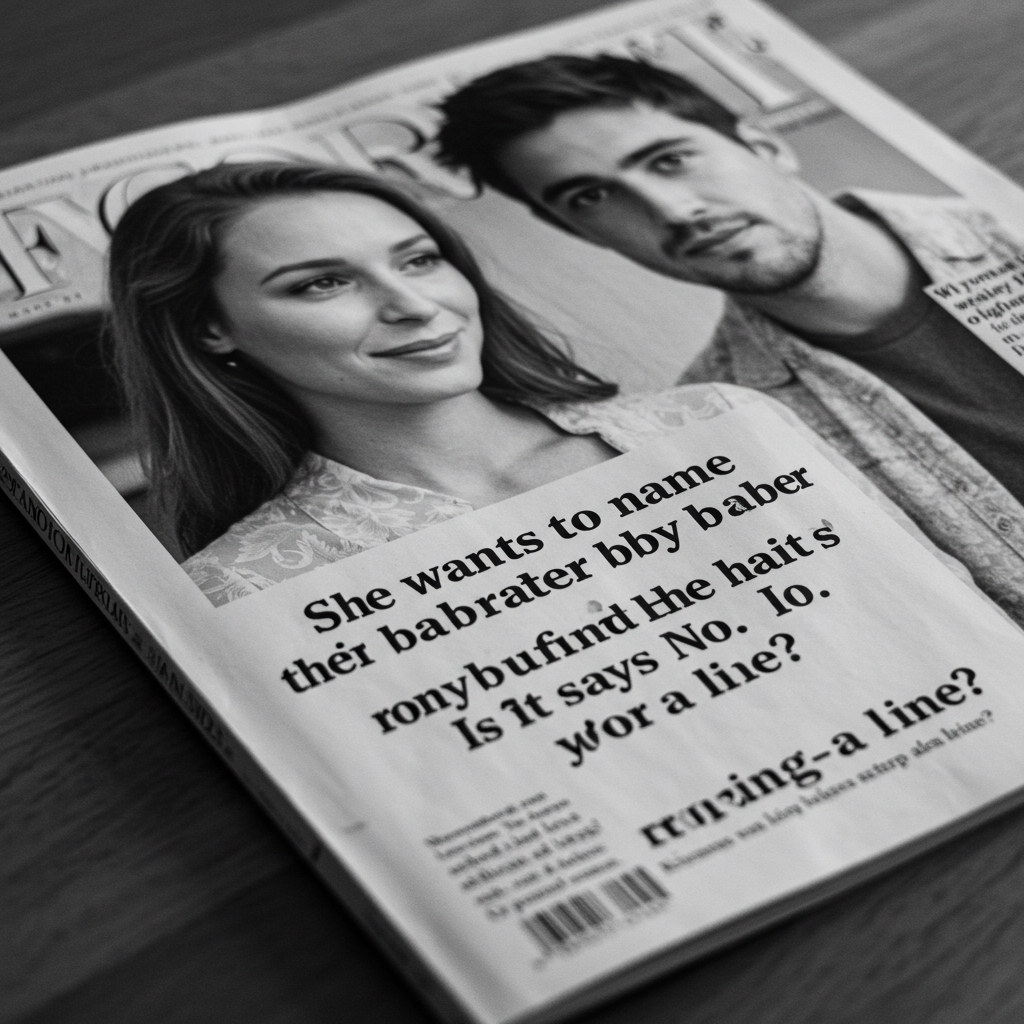
The Original Poster (OP) and his wife are expecting their first child. Like many couples, they started brainstorming names together. Things were going smoothly—until OP’s wife suggested the name “Andrew.” OP paused. That name rang a bell.
Turns out, Andrew was her high school boyfriend who passed away in a tragic accident just before college. He was her “first love,” and she admitted she had always imagined honoring his memory if she ever had a son.
OP felt blindsided. He understood grief and loss, but naming their child after someone his wife had loved intimately before their relationship didn’t sit well with him. It wasn’t just about jealousy—it was about emotional baggage, identity, and what this name would mean in their family.
When OP expressed discomfort, his wife accused him of being selfish, insecure, and disrespectful to someone who “meant a lot” to her. Now he’s wondering: Am I the jerk for refusing to name our son after my wife’s dead ex?
Naming a Baby: An Emotional Minefield
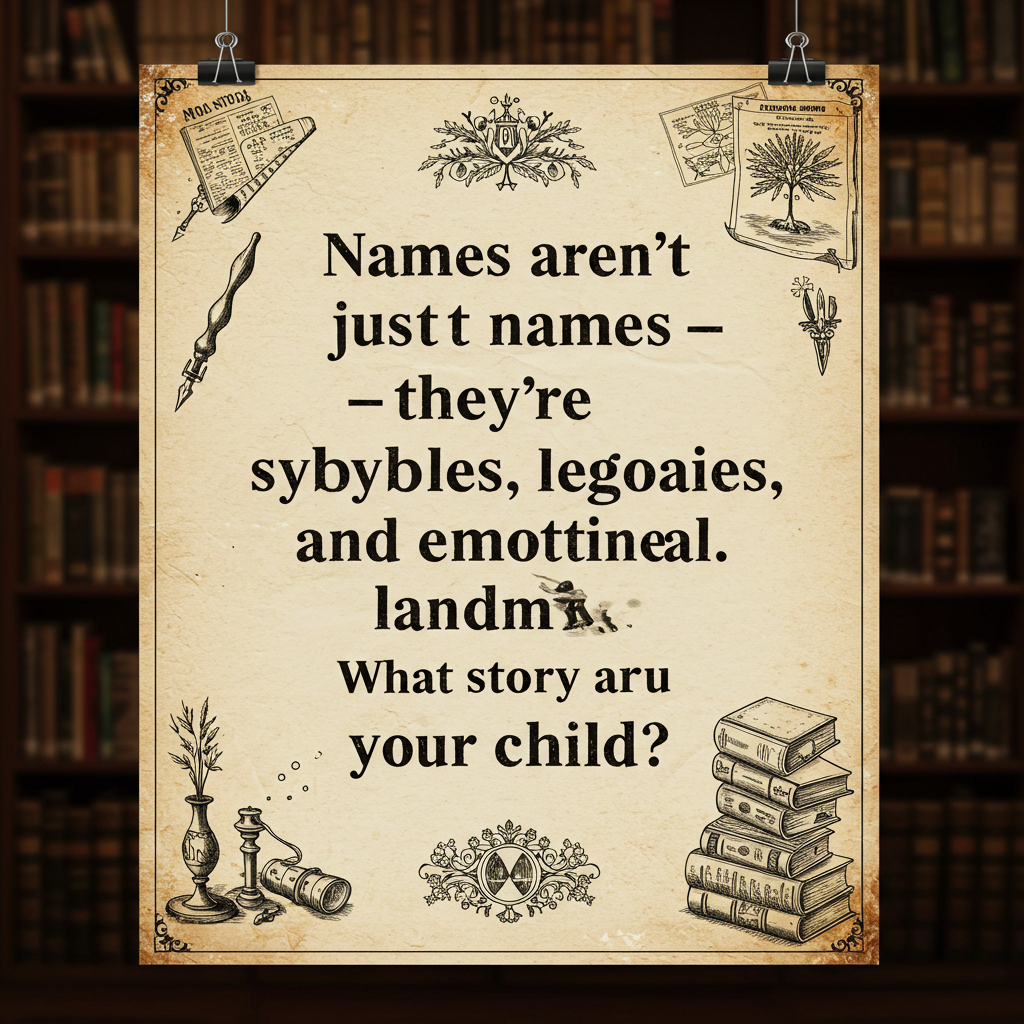
Naming Isn’t Just Sentimental—It’s Symbolic
Naming a child is more than a sentimental choice—it’s a symbolic act that often reflects the parents’ hopes, values, or emotional milestones. For OP, choosing a name together was supposed to represent a new beginning as a family.
But using the name of a past romantic partner—even one who has passed away—raises important questions. Does it honor love, or does it preserve a love story that should’ve ended long ago?
Reddit users weighed in heavily on this point. Most agreed that while honoring the dead is noble, it shouldn’t come at the emotional cost of your partner. Especially not when it involves romantic history.
Names Shape Identity—for the Parents and the Child
Another concern voiced by OP was how the name would shape their son’s identity. Would the child grow up with the ghost of someone else’s love story hanging over him? Would he feel like a replacement or tribute rather than a unique individual?
Parents often forget that names carry weight—not just in meaning, but in legacy. If the story behind the name is complex or emotional, it’s bound to become a part of the child’s story, whether intended or not.
Boundaries and Respect in Relationships

Grief Is Valid—But So Are Relationship Boundaries
Reddit commenters were quick to sympathize with the wife’s grief, but even quicker to draw a line between healthy remembrance and crossing emotional boundaries in a marriage.
A relationship should be a safe space where both partners feel heard and respected. By insisting on a name with heavy romantic connotations, OP’s wife may have unintentionally undermined her husband’s emotional safety.
Several users asked: Would she be okay if OP wanted to name their daughter after his late ex-girlfriend? Probably not.
Is This About Honoring or Holding On?

The heart of the issue may not be about the name at all—but what it represents. If OP’s wife hasn’t fully let go of that past love, using his name might be a subconscious way to keep him alive in a new chapter of her life.
That’s not necessarily malicious, but it does suggest unresolved feelings. And unresolved grief—when mixed with the emotional intensity of parenthood—can create unhealthy dynamics.
A Middle Ground: Is Compromise Possible?
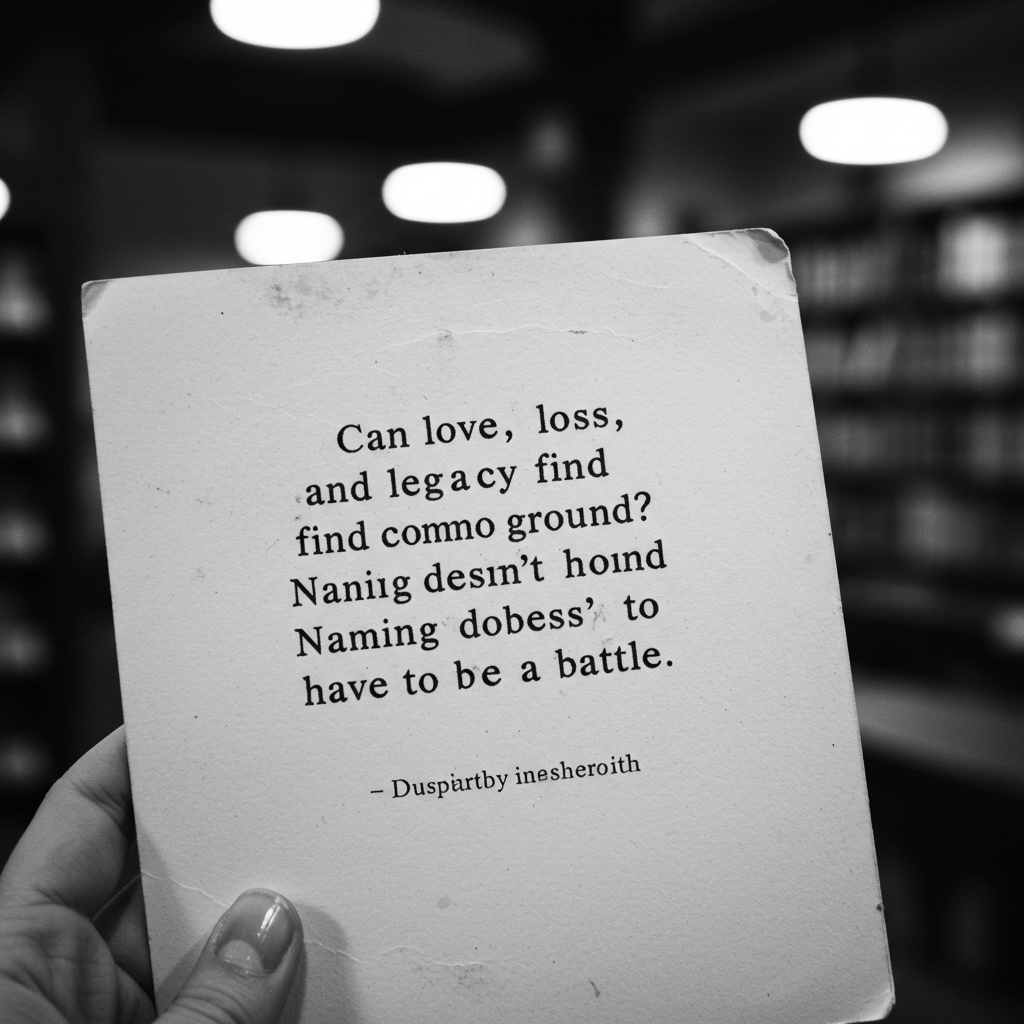
Exploring Alternatives
Some commenters offered compromise suggestions: What about using “Andrew” as a middle name? Or choosing a different name that holds meaning for both parents? Others proposed honoring a different family member or even inventing a new name altogether.
The goal isn’t to erase the past, but to find a future that both partners can stand behind without discomfort or resentment.
The Bigger Picture: Raising a Child, Together
At the end of the day, naming a child should be a decision made with mutual respect. If either partner feels strongly uncomfortable with a name, that’s reason enough to reconsider.
Resentment over a name might seem small now—but it can plant seeds of conflict down the line. Better to resolve it with honesty, understanding, and teamwork.
Reddit’s Verdict: Not the Jerk
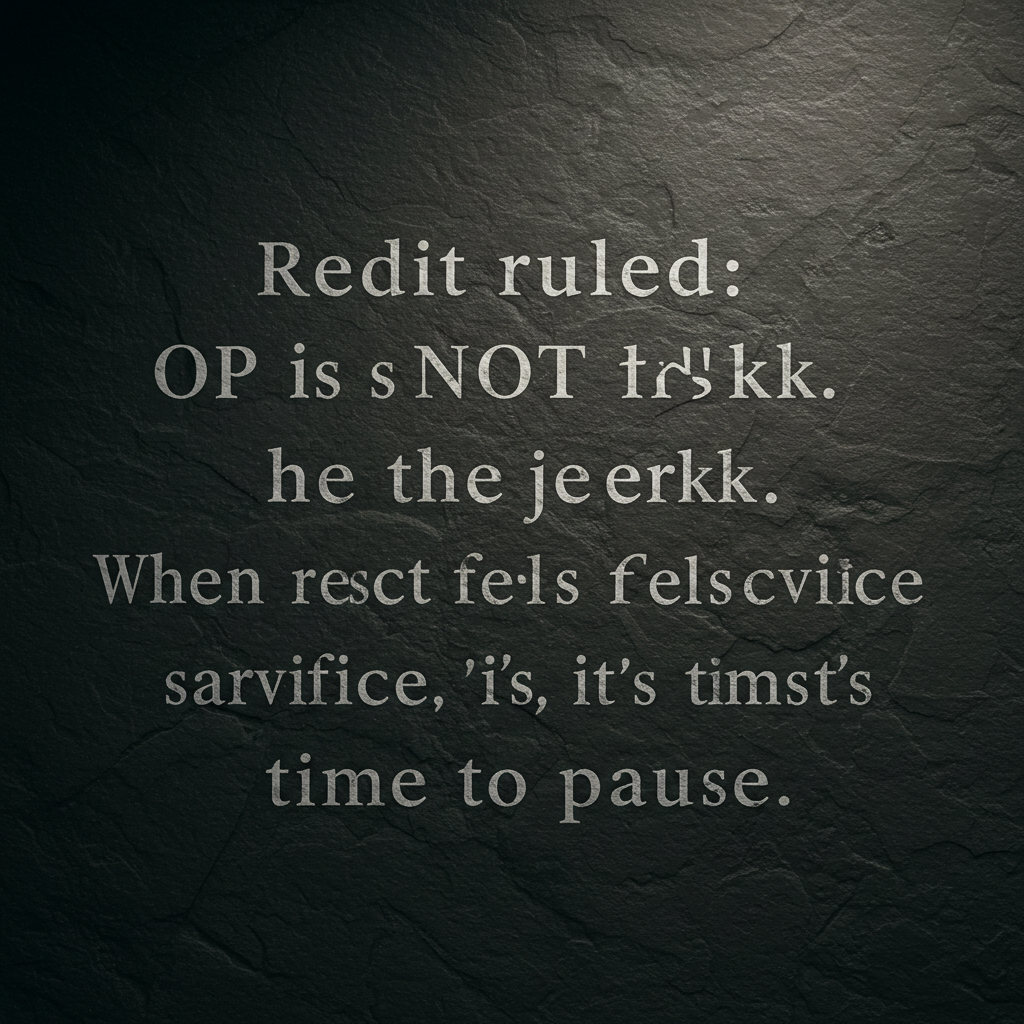
The AITAH community made their stance loud and clear: OP is not the jerk.
Here are a few standout takes:
“This isn’t about insecurity—it’s about respect. You shouldn’t have to raise a child named after someone your wife loved before you.”
“Imagine telling your son one day, ‘You’re named after your mom’s dead boyfriend.’ That’s just…weird.”
“You’re building a family together. The past can be honored without overshadowing the present.”
Some even shared similar personal stories—one user mentioned how their partner wanted to name a child after a deceased friend, and they compromised on a name with shared meaning instead.
Final Thoughts: A Name Should Bring You Together, Not Drive You Apart
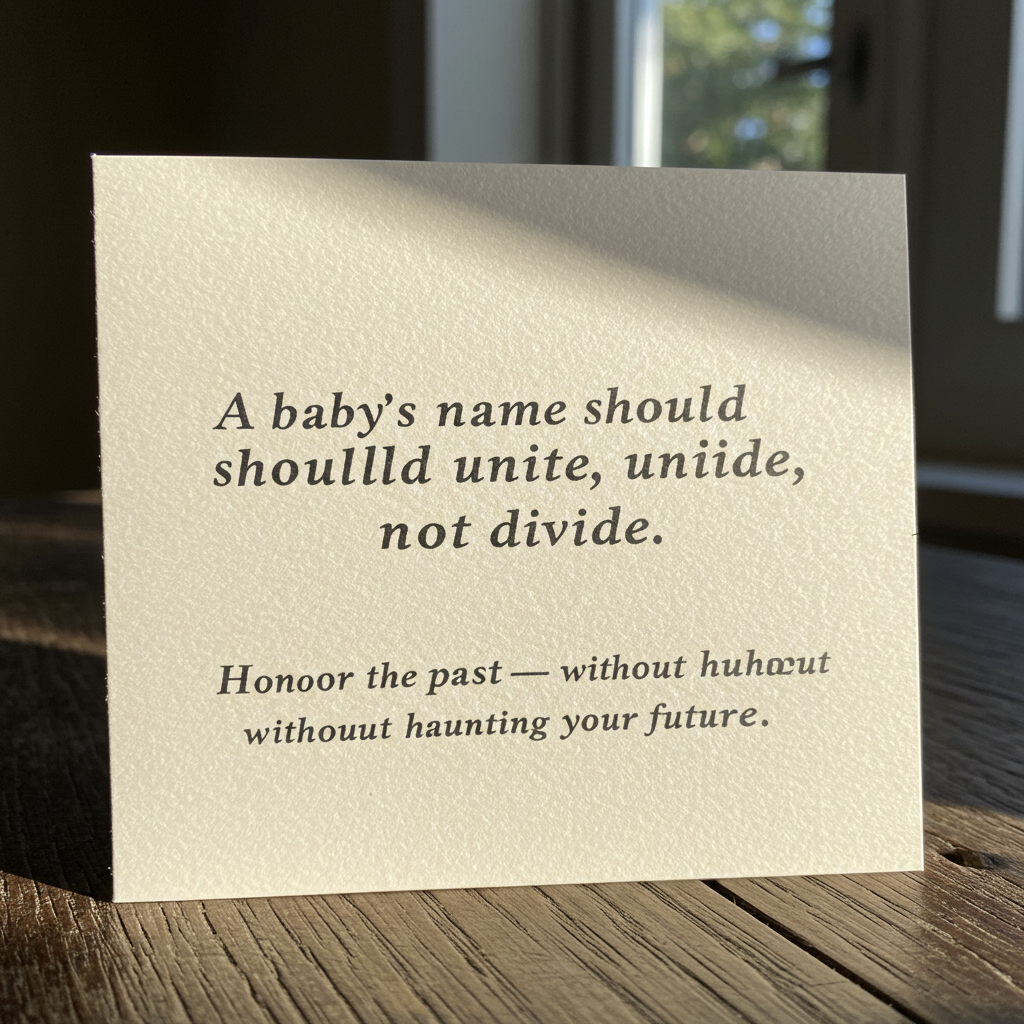
Choosing a name is one of the first and most symbolic choices parents make. It should be a moment of connection, not contention.
In this AITAH scenario, OP’s refusal isn’t about insecurity or insensitivity—it’s about creating a shared future that doesn’t live in the shadow of past romances. While grief deserves empathy, so does the person standing beside you today.
Honoring the dead shouldn’t mean alienating the living.
